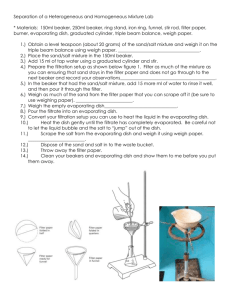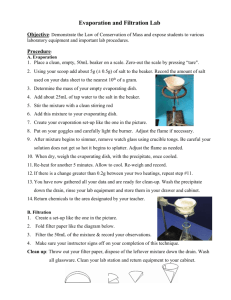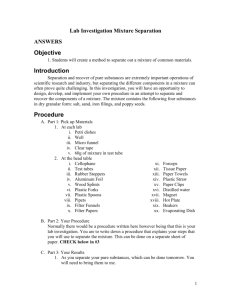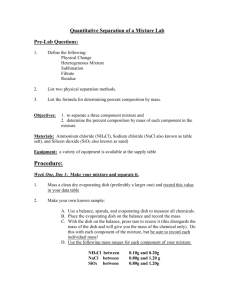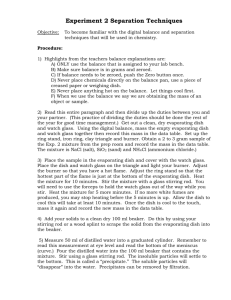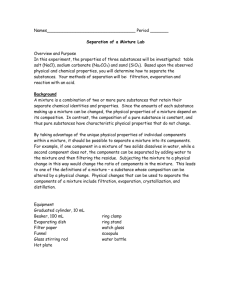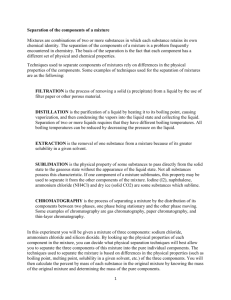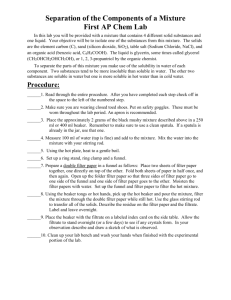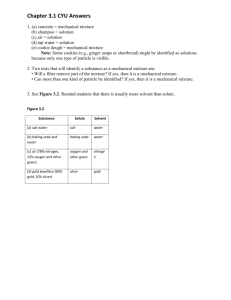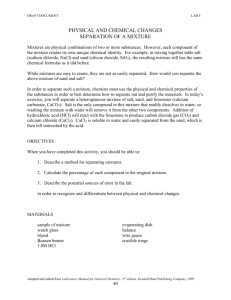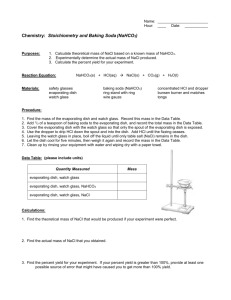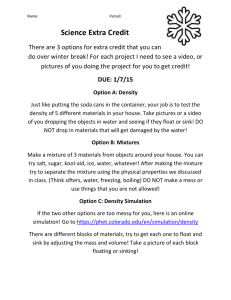LAB: SEPARATION OF A MIXTURE
advertisement
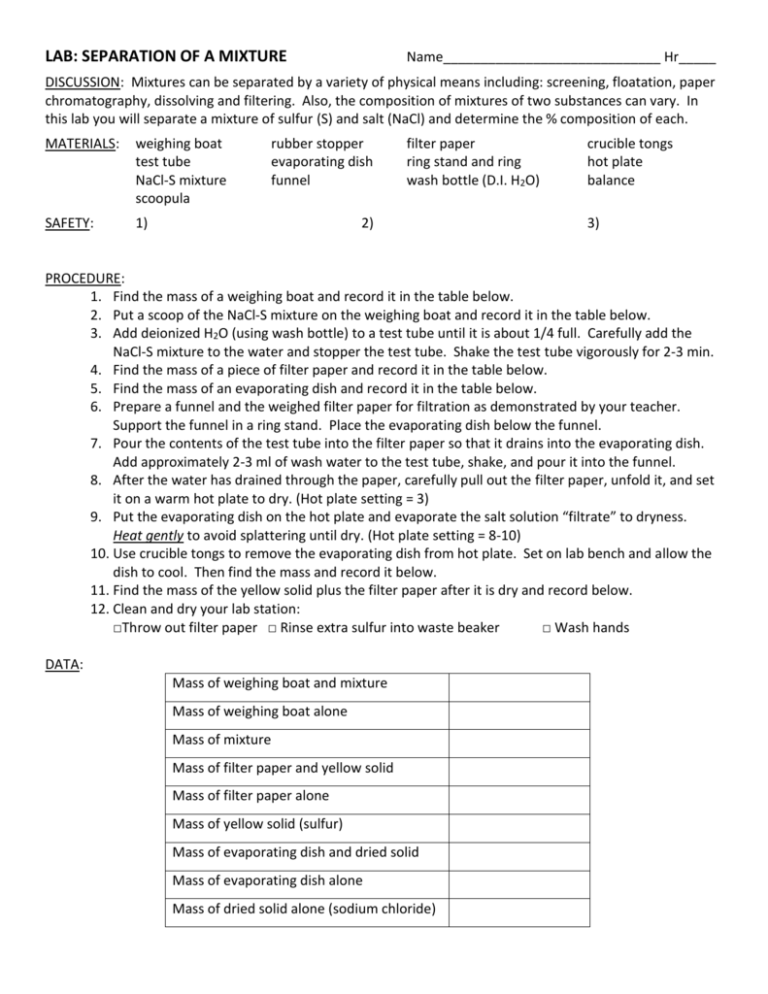
LAB: SEPARATION OF A MIXTURE Name_____________________________ Hr_____ DISCUSSION: Mixtures can be separated by a variety of physical means including: screening, floatation, paper chromatography, dissolving and filtering. Also, the composition of mixtures of two substances can vary. In this lab you will separate a mixture of sulfur (S) and salt (NaCl) and determine the % composition of each. MATERIALS: weighing boat test tube NaCl-S mixture scoopula SAFETY: 1) rubber stopper evaporating dish funnel filter paper ring stand and ring wash bottle (D.I. H2O) 2) crucible tongs hot plate balance 3) PROCEDURE: 1. Find the mass of a weighing boat and record it in the table below. 2. Put a scoop of the NaCl-S mixture on the weighing boat and record it in the table below. 3. Add deionized H2O (using wash bottle) to a test tube until it is about 1/4 full. Carefully add the NaCl-S mixture to the water and stopper the test tube. Shake the test tube vigorously for 2-3 min. 4. Find the mass of a piece of filter paper and record it in the table below. 5. Find the mass of an evaporating dish and record it in the table below. 6. Prepare a funnel and the weighed filter paper for filtration as demonstrated by your teacher. Support the funnel in a ring stand. Place the evaporating dish below the funnel. 7. Pour the contents of the test tube into the filter paper so that it drains into the evaporating dish. Add approximately 2-3 ml of wash water to the test tube, shake, and pour it into the funnel. 8. After the water has drained through the paper, carefully pull out the filter paper, unfold it, and set it on a warm hot plate to dry. (Hot plate setting = 3) 9. Put the evaporating dish on the hot plate and evaporate the salt solution “filtrate” to dryness. Heat gently to avoid splattering until dry. (Hot plate setting = 8-10) 10. Use crucible tongs to remove the evaporating dish from hot plate. Set on lab bench and allow the dish to cool. Then find the mass and record it below. 11. Find the mass of the yellow solid plus the filter paper after it is dry and record below. 12. Clean and dry your lab station: □Throw out filter paper □ Rinse extra sulfur into waste beaker □ Wash hands DATA: Mass of weighing boat and mixture Mass of weighing boat alone Mass of mixture Mass of filter paper and yellow solid Mass of filter paper alone Mass of yellow solid (sulfur) Mass of evaporating dish and dried solid Mass of evaporating dish alone Mass of dried solid alone (sodium chloride) CALCULATIONS: Determine the % by mass of each component (S and NaCl) in your mixture. % by mass = mass of component mass of mixture x 100 1. Percent of mixture that is sulfur: _________________________ Show work below. 2. Percent of mixture that is sodium chloride: ___________________________ Show work below. 3. Add together the percents in questions #1 and #2: _____________ QUESTIONS: 1. Are the total percents added up more or less than 100%? Give a detailed explanation of why your results did not add up to 100%. In other words, if your total percent was less than/more than 100%, what might have happened with your lab technique to result in less than/more than expected? 2. How would you classify the salt/sulfur mixture? Explain. (Use your matter flowchart to decide) 3. Draw a molecular representation of the salt water evaporation you performed in step 9 of the procedure. Label "before" and "after" evaporation. Use symbols or shapes to represent NaCl and H 2O molecules.
